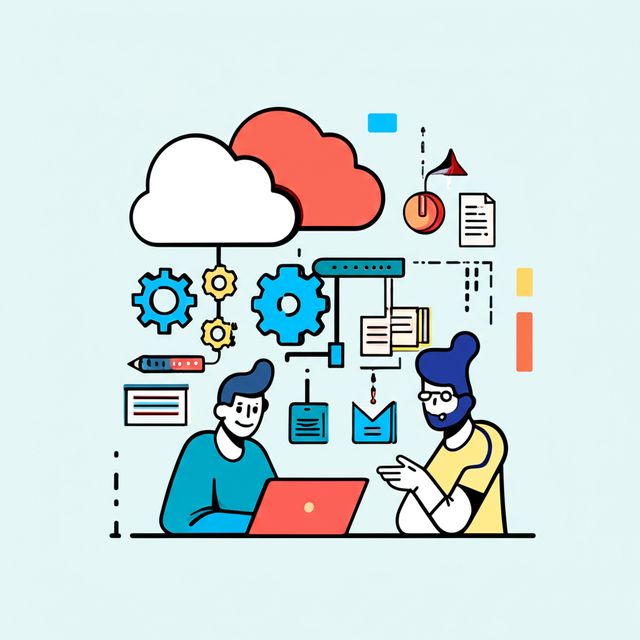Cloud DevOps Engineer
Cloud DevOps Engineers are responsible for creating and maintaining the infrastructure and tools that developers use to build, test, and deploy software. They work with developers to automate the software development lifecycle, from planning and coding to testing and deployment. Cloud DevOps Engineers must have a deep understanding of both cloud computing and DevOps practices.
Responsibilities
Cloud DevOps Engineers typically have the following responsibilities:
- Create and maintain the infrastructure and tools that developers use to build, test, and deploy software
- Automate the software development lifecycle, from planning and coding to testing and deployment
- Work with developers to identify and resolve bottlenecks in the software development process
- Monitor the performance of the software development infrastructure and make improvements as needed
- Stay up-to-date on the latest cloud computing and DevOps practices
Skills
Cloud DevOps Engineers typically have the following skills:
- Cloud computing
- DevOps practices
- Software development
- Automation
- Problem-solving
- Communication
- Teamwork
Education
Cloud DevOps Engineers typically have a bachelor's degree in computer science, software engineering, or a related field. They may also have certification in cloud computing or DevOps practices.
Career Path
Many Cloud DevOps Engineers start their careers as software developers or system administrators. They then gain experience in cloud computing and DevOps practices through on-the-job training or formal education. With experience, Cloud DevOps Engineers can move into management roles.
Job Outlook
The job outlook for Cloud DevOps Engineers is expected to be excellent in the coming years. The demand for cloud computing and DevOps services is growing rapidly, and there is a shortage of qualified engineers.
Personal Growth
Cloud DevOps Engineers have the opportunity to learn new skills and technologies throughout their careers. They can also take on leadership roles and manage teams of engineers.
Challenges
Cloud DevOps Engineers face a number of challenges, including:
- Keeping up with the latest cloud computing and DevOps practices
- Managing the complexity of cloud computing environments
- Ensuring the security of cloud computing environments
- Working with developers who have different skill sets and experience levels
Projects
Cloud DevOps Engineers may work on a variety of projects, including:
- Creating and maintaining the infrastructure for a new software application
- Automating the software development lifecycle for a new software application
- Improving the performance of the software development infrastructure
- Migrating a software application to the cloud
- Securing a cloud computing environment
Personality Traits
Cloud DevOps Engineers typically have the following personality traits:
- Analytical
- Problem-solving
- Communication
- Teamwork
- Adaptability
Self-Guided Projects
Students who are interested in pursuing a career as a Cloud DevOps Engineer can complete a number of self-guided projects to better prepare themselves for this role. These projects can include:
- Building a cloud computing environment
- Automating the software development lifecycle
- Creating a DevOps toolchain
- Migrating a software application to the cloud
- Securing a cloud computing environment
Online Courses
There are many online courses that can help students prepare for a career as a Cloud DevOps Engineer. These courses can teach students the skills and knowledge they need to succeed in this role. Online courses can be a helpful learning tool for students who are looking to enter the field of cloud computing or DevOps.
Online courses can help students learn about cloud computing concepts, DevOps practices, and software development tools. They can also provide students with the opportunity to practice their skills through hands-on projects and assignments. Online courses can be a flexible and affordable way to learn about this career field.
However, it is important to note that online courses alone are not enough to follow a path to this career. Students who are serious about pursuing a career as a Cloud DevOps Engineer should also gain experience through internships, personal projects, or other hands-on activities.


